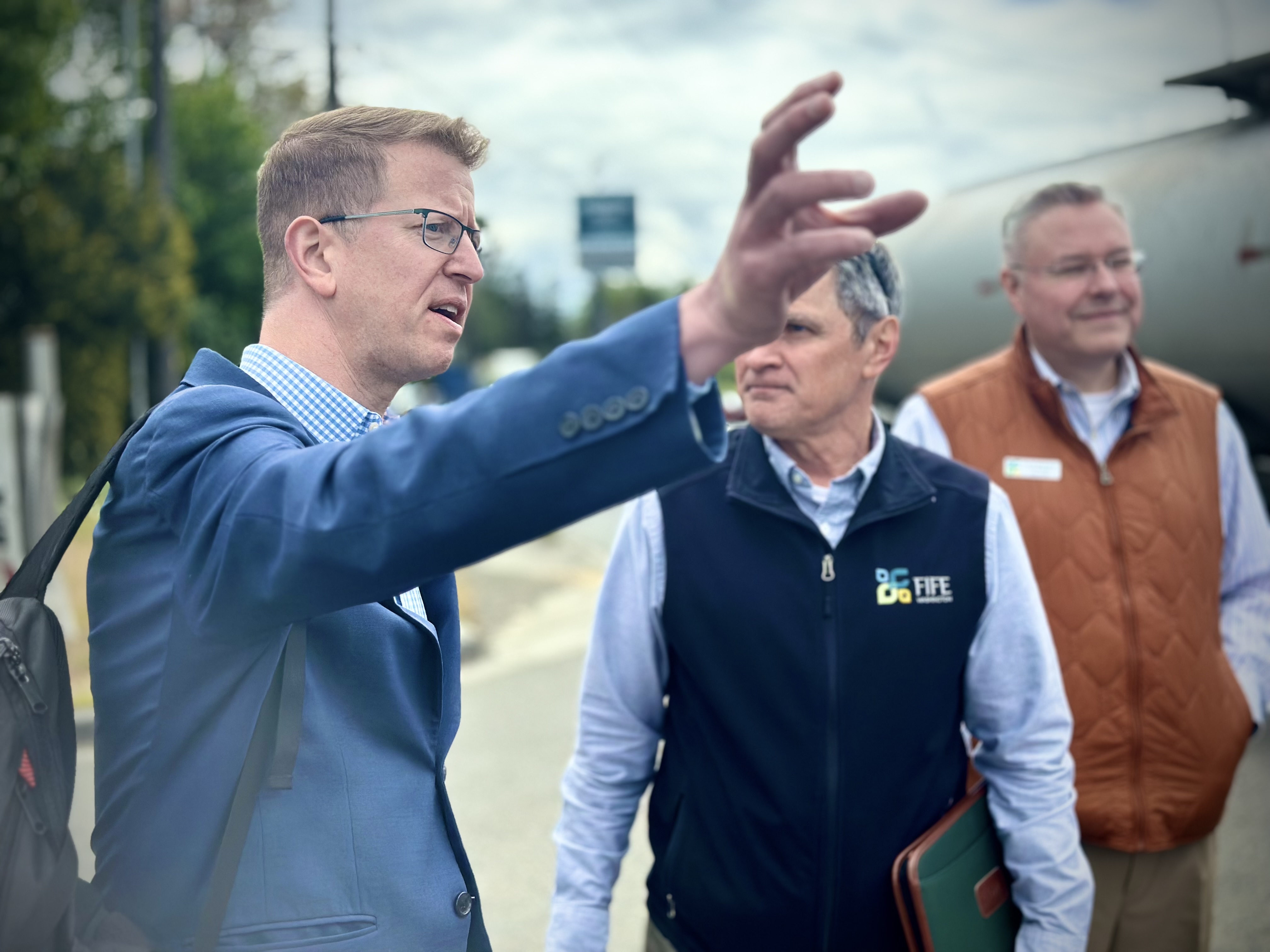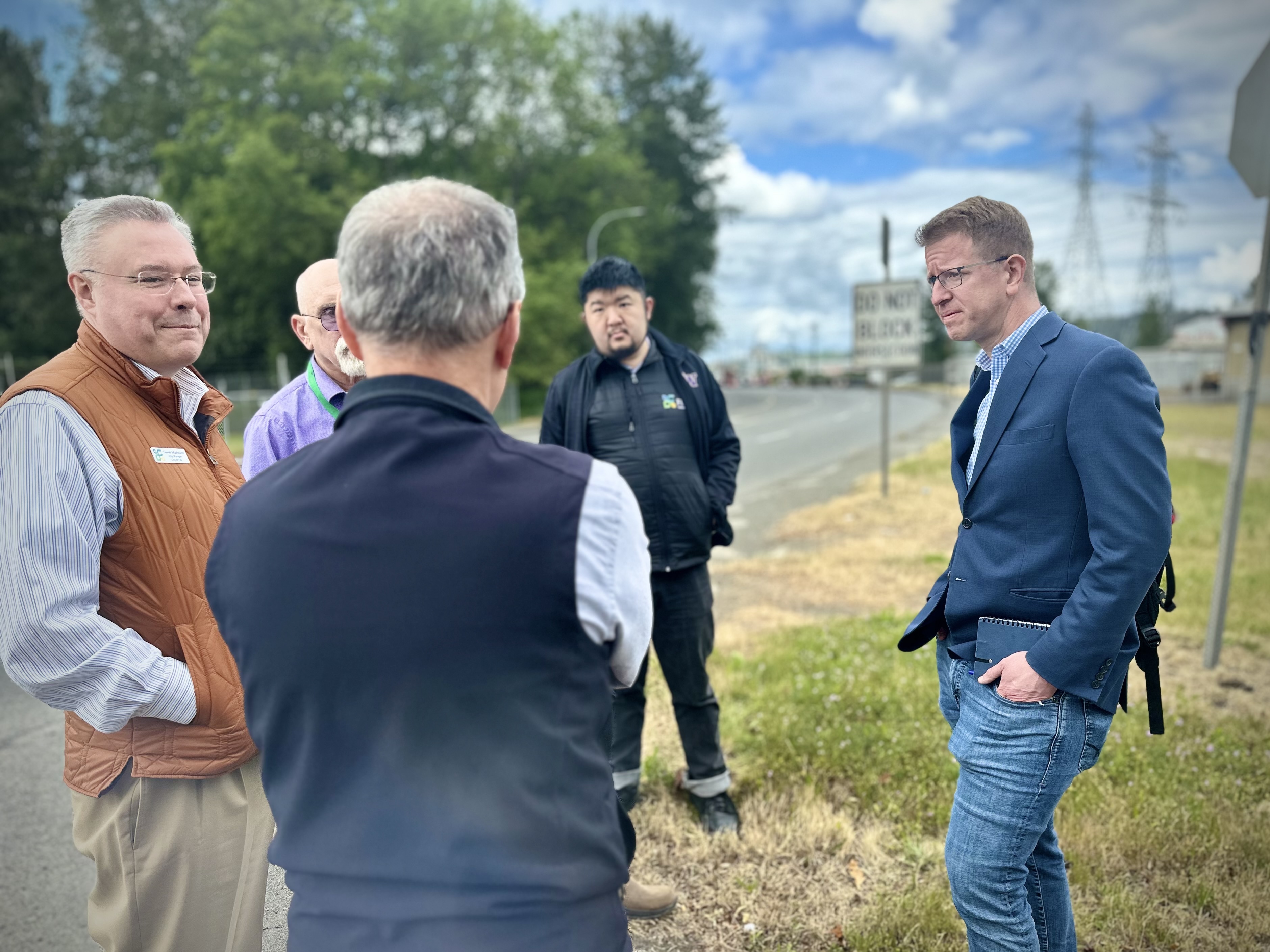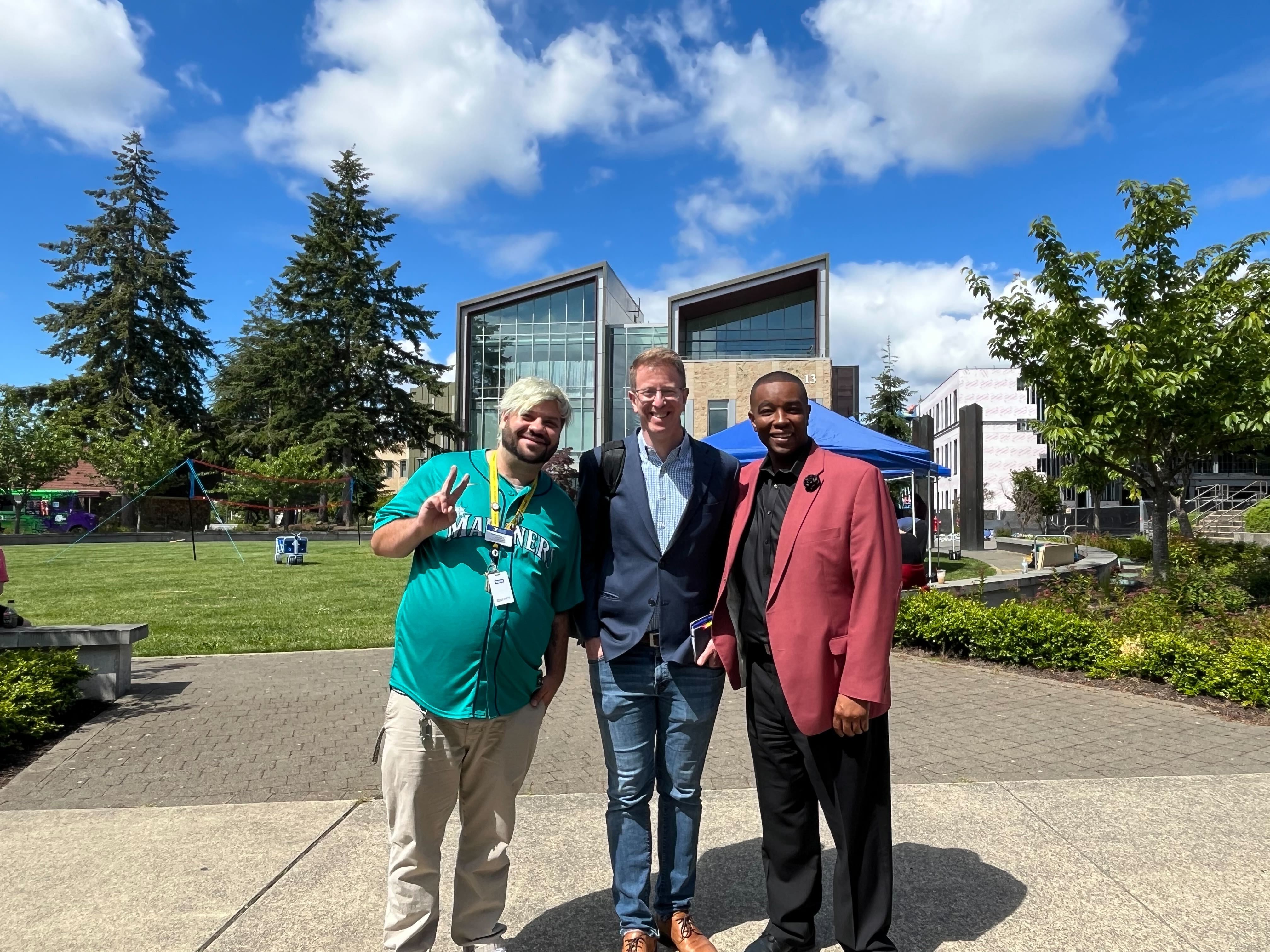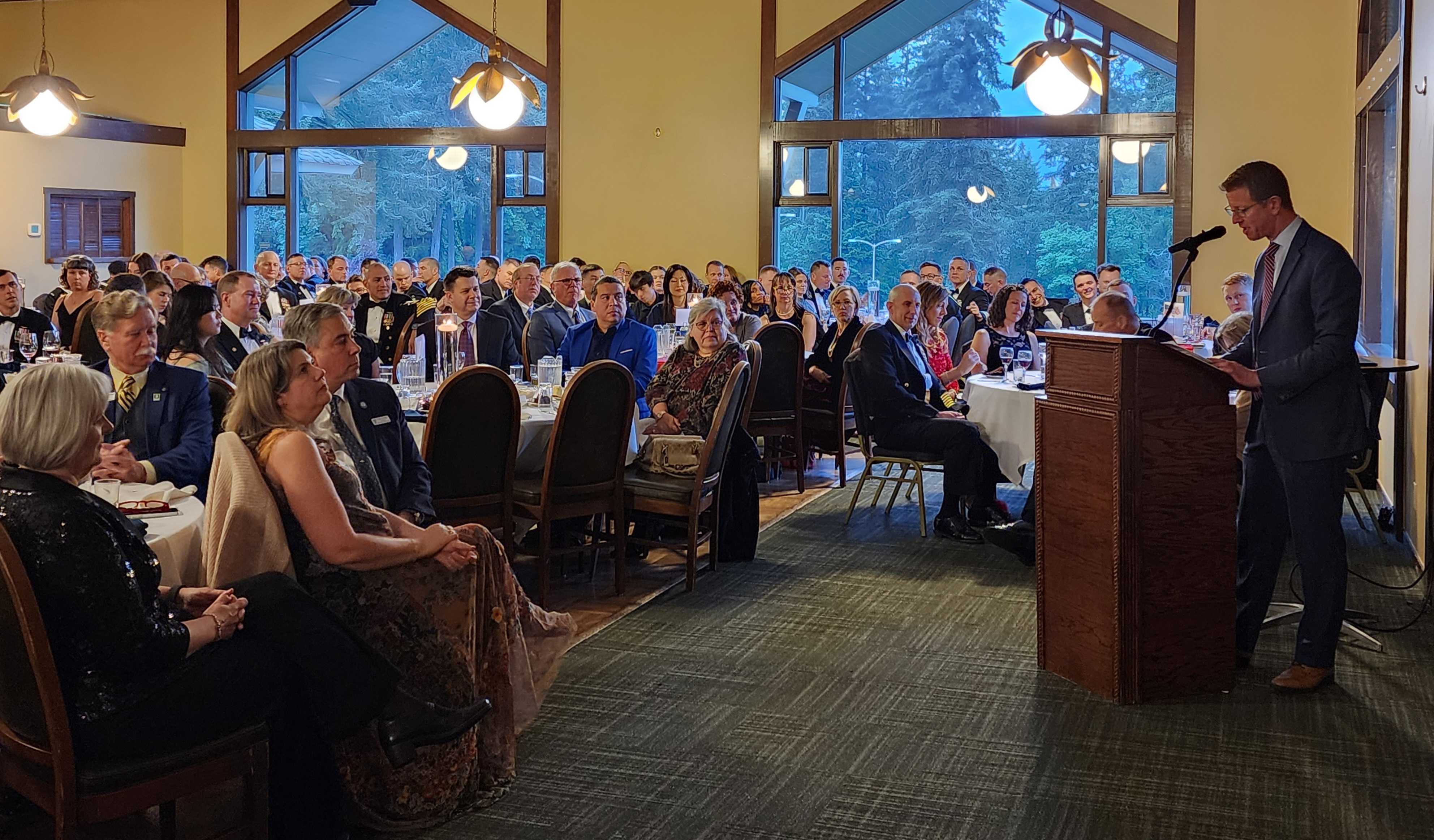An Update on Major Funding Wins Across Our Region
Hello Folks –
June is finally here, and we are only a matter of weeks away from the official start to summer! It’s an exciting time! We are finally seeing some evidence of the existence of the sun. Some folks are taking summer vacations. And some families have graduating seniors (including mine – congratulations to my daughter, Sophie, for graduating high school! Proud of you, kiddo!).
In the meantime, I’m continuing to run from pillar to post to keep making progress for folks across our region. It’s been a busy few weeks, so let’s get right into the news.
Championing Local Priorities
Appropriations season is well underway in Washington, D.C. The Appropriations Committee is responsible for passing funding bills that allocate federal dollars to government agencies, departments, and organizations for a variety of programs and projects. As a member of the House Appropriations Committee, I work to prioritize investments for our region that will create jobs and support the communities I serve.
That has included pursuing funding to support the important national security work – and the thousands of jobs at Puget Sound Naval Shipyard. It’s included investments to restore Puget Sound, to support Olympic National Park, and to fund the vital research done at the Pacific Northwest National Lab in Sequim. It has included fighting for funding to serve veterans and to fulfill tribal treaty obligations. And much more! In a nutshell, the Appropriations Committee is a great avenue for me to go to bat for our region and its priorities.
In the House, I also get to submit 15 requests for “community project funding,” to support projects and programs in our congressional district. During the process, I’ve often focused on projects that create economic opportunity or address threats in our communities … think public safety, poor infrastructure, or a lack of affordable housing. This year was no different. Over the last few weeks, I’ve been taking the time to check in with a few of the projects selected through this year’s Community Project Funding process, to get a firsthand look at local efforts to improve our communities and see exactly why it’s so important to get these projects federal funding.
First up, I had the chance to meet up with folks from the City of Fife, including Fife’s City Manager Derek Matheson and Public Works Director Greg Vigoren, to learn more about the 54th Avenue East & Taylor Way Corridor Improvements project.

When completed, this project will facilitate new economic growth and decrease traffic congestion in the region. That’s a big deal for folks along the I-5 corridor, including residents of Fife and Tacoma. Fixes for that area’s traffic congestion will improve access for residents and local businesses (including tribal businesses), support freight mobility at the port, and improve efforts by Joint Base Lewis-McChord to mobilize resources. That’s a win-win-win!

Next up, I headed over to the University of Washington Tacoma campus, where I met up with the folks leading the charge on another major project that will help our nation compete in the semiconductor chips market: the “Radio Frequency Wireless IC Laboratory” at the University of Washington Tacoma, which will research Radio Frequency Integrated Circuits (RFIC) for wireless communication applications.
.jpg)
This project builds on the important foundation laid by the CHIPS and Science Act, which aims to help improve our nation’s supply chains, prevent shortages of critical goods, and ensure that more critical chips are made here in America. Ultimately, it’s projects like this one at the UWT that will help create more jobs, lower costs for families, and help America compete.
.jpg)
Working to Protect Local Salmon Populations
As someone who grew up on the Olympic Peninsula, it’s been a big priority of mine to work to support projects that improve water quality and enhance fish passage and salmon habitat.
Salmon recovery is both an environmental and cultural concern here in Washington, where our economy and identity are directly tied to the health of our salmon. That’s why in the other Washington – DC – it’s a huge priority of mine to secure enhanced federal funding for programs that support salmon recovery in our region.

I was thrilled to recently announce that the National Oceanic and Atmospheric Administration (NOAA) has awarded $18.4 million in new federal funding to four fish passage restoration projects here in our neck of the woods.
This funding, made possible by the Bipartisan Infrastructure Law (BIL) and the Inflation Reduction Act, aims to restore fish passage and improve aquatic access to healthy habitats. These grants are part of nearly $75 million in funding for Washington state projects – including $39.4 million for Tribes – to help remove fish barriers, improve fish passage, and protect critical habitats.
That funding included:
- $8.4 million for Trout Unlimited to restore access to high-quality spawning and rearing habitat within the Olympic Peninsula by addressing 6 fish passage barriers in the Hoh, Queets-Quinault, and Quillayute watersheds;
- $1.4 million for the Lower Elwha Klallam Tribe to address one of the last remaining fish passage barriers in the Ennis Creek watershed by replacing undersized culverts on a city road in Port Angeles with a bridge. This work will benefit threatened Puget Sound steelhead, bull trout, and Chinook salmon. The new bridge will also help reduce maintenance costs and reduce the risk of road failure and flooding;
- $2.2 million for the Port Gamble S’Klallam Tribe to address fish passage at the Hood Canal Bridge to reduce a major cause of mortality for juvenile steelhead. They will develop a plan for near-term solutions to immediately reduce the loss of steelhead at the bridge and evaluate potential long-term solutions. Addressing this significant barrier will help support sustainable Tribal fisheries and protect Tribal trust resources; and
- $6.4 million for the Squaxin Island Tribe to remove the 5th Avenue Dam, a barrier built across the mouth of the Deschutes River to create Capitol Lake. Removal of the dam and restoration of the estuary will create a significant amount of habitat of key importance to the recovery of threatened Puget Sound Chinook.
As a member of the House Appropriations Committee and Co-Chair of the Puget Sound Recovery Caucus, I’ve worked to secure new funding opportunities through the BIL to support fish passage and recovery. This funding includes $1 billion for the National Culvert Removal, Replacement, and Restoration Grant Program, a new program I created with Senator Cantwell that is aimed at removing, replacing, or restoring culverts -- the first federal program devoted to culvert restoration.

Supporting Innovation in Education
In recent years – even before the pandemic – we’ve seen massive, disruptive economic change. That’s why it’s crucial that we don’t leave students behind. Whether someone goes to a trade school, an apprenticeship program, a community college, or a 4-year university, it’s important to support students as they work to open the doors of educational – and economic – opportunity. We are lucky to have some extraordinary institutions in our region that are doing amazing work!
I visited one of them a couple of weeks ago when I had the chance to join Tacoma Community College President, Dr. Ivan Harrell, to discuss the exciting progress of Tacoma Community College’s Center for Innovative Learning and Engagement. This exciting new project offers the opportunity for the centralization of business, humanities, and social sciences, where students will have the chance to learn and collaborate with each other.

This unique approach to cross-disciplinary learning is exciting and a step toward expanding the competitive edge of students here in our region. With modern, inclusive, hands-on learning and gathering spaces for students, staff, and faculty, Tacoma Community College is leading the way in incorporating innovative models of learning. I look forward to seeing TCC’s continued progress, and I’m committed to being a partner on this important project.

Working for You
Having the Backs of Our Service Members
Last month, I had an opportunity to speak at the Navy League Armed Forces Day Gala in Bremerton. I am grateful to the Navy League and to every sailor who lives in our community for the sacrifices they make!
.jpg)
Celebrating Young Artists in Our Community
I was thrilled to get the chance last week to chat with the winner of the 2024 Congressional Art Competition for Washington’s 6th District, Charles Wright Academy student Mera Foster! Check out this video to meet Mera and learn more about the work and inspiration that went into her winning artwork “Piecing Together a Memory”.
OK – that’s it for now, folks. As always, I’m honored to represent you.
Sincerely,
Derek Kilmer

